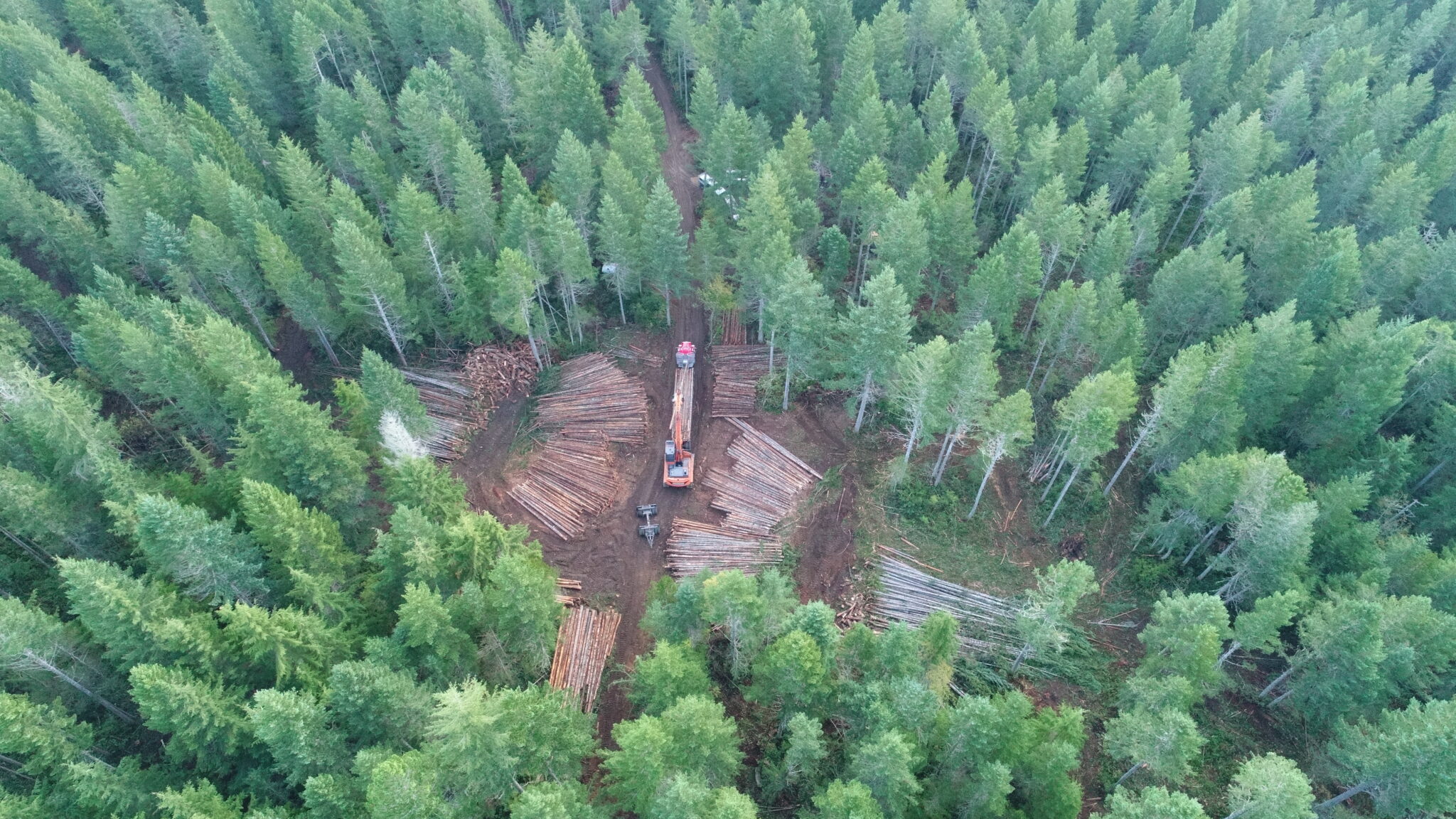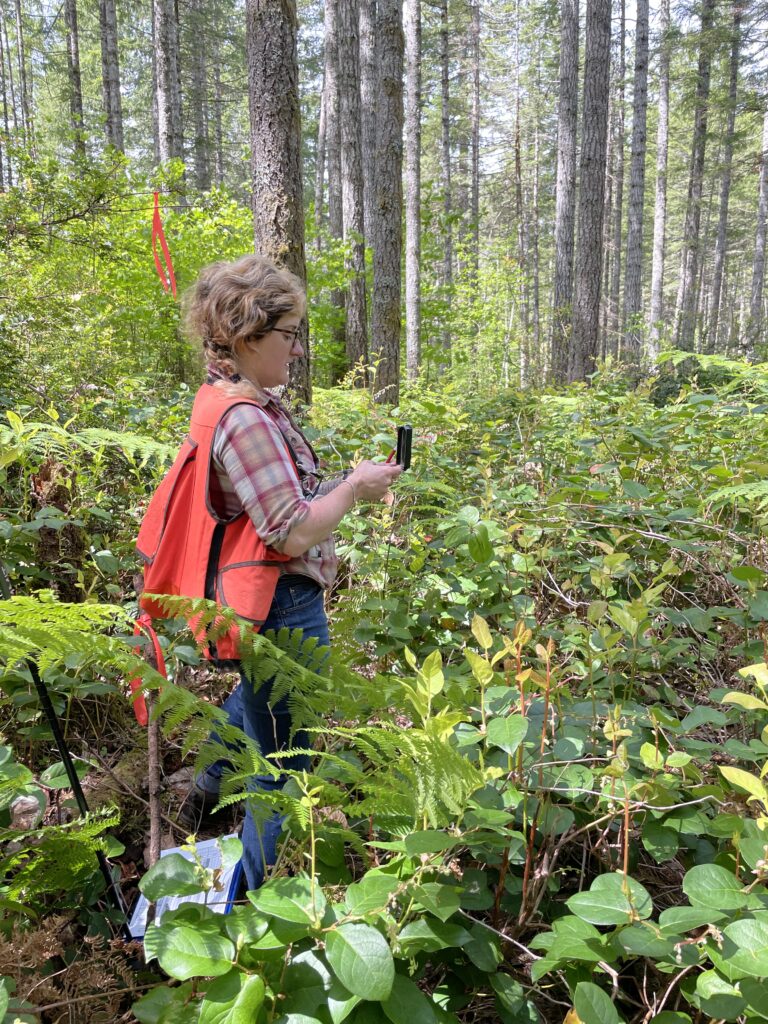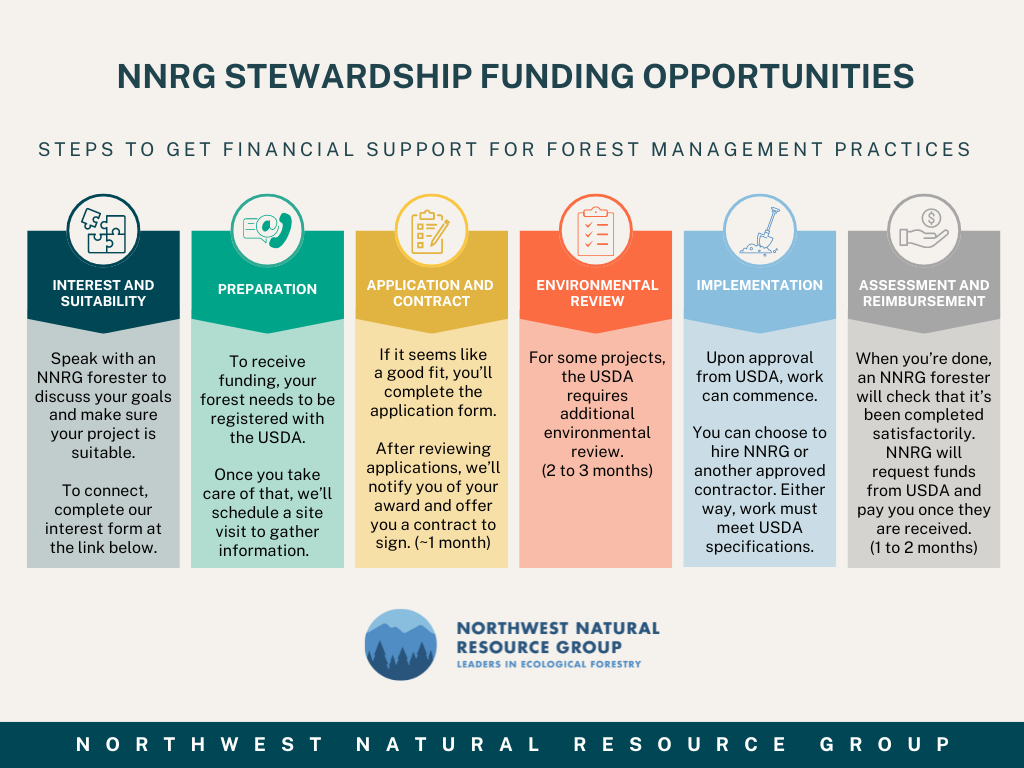
Funding for climate-friendly forestry
Note: this program is currently paused while the USDA re-evaluates funding for grants awarded under the Partnerships for Climate Smart Commodities.
announcing a new funding opportunity for landowners in Washington
With funding from the USDA’s Climate-Smart Commodities program, NNRG can now offer cost-share assistance directly to landowners in western Washington to help their forests better withstand climate change and store more carbon — thus reducing the amount of planet-warming carbon dioxide in the air.
NNRG offers this funding as part of a coalition that has launched a sweeping “climate-smart” forestry initiative promoting forest health, climate resilience, and carbon storage – and connecting those landowners with green builders who want “climate-smart” wood.
Forest stewardship activities NNRG will support through this program
- Forest management plans, new and updated.
- Pre-commercial thinning
- Commercial thinning of low-value stands that makes them more climate-resilient
- Reforestation with species or genetic stock chosen to adapt to the changing climate (also known as assisted migration)
- Modeling of enhanced carbon sequestration as a result of changes in rotation age or thinning schedules
- Managing brush competition in recently planted stands
- Reducing fuels and mitigating fire risk


I’m interested! What’s next?
Fill out our Interest Form below to share some information about your forest and your hopes for it. A forester from NNRG will get in touch!
What do you mean by ‘climate-friendly’ forestry?
Climate-friendly forestry is shaped by an awareness of how forests influence the climate and how climate change is likely to affect forests in the future. This increases ecological resilience in the face of climate change and sequesters and stores more carbon over time compared to conventional practices. The net effect of climate-smart forestry is to reduce greenhouse gas concentrations in the atmosphere and enhance the health of forests and the multiple values they deliver.
Where did this funding come from?
Supported by a $25 million grant from the USDA Partnerships for Climate-Smart Commodities, this consortium of NNRG and seven other organizations will work with nearly 200 forest landowners – including tribes, local communities, families, and nonprofits – to restore forest health using the best available science. Partners will track carbon storage and other benefits, and market the associated climate-smart wood products.

Our partners in this project are Ecotrust, Pierce Conservation District, Sustainable Northwest, Trout Mountain Forestry, Vibrant Planet Data Commons, Vibrant Planet Public Benefit Corporation, and Washington Conservation Action.
Nuts and Bolts
What are the steps to participate once I fill out the interest form?
- A forester from NNRG will contact you to discuss your goals for your forest.
- If it seems that there’s a good fit between your objectives and this program, you will need to enroll your forest with the USDA’s Farm Services Agency and obtain a farm tract and field number (if you haven’t already done so) and obtain documentation from them showing that you are on their rolls.
- Fill out a simple application form. We’ll then prepare a contract for you to look over.
- For management planning and modeling, you can select a provider and start right after you have a fully signed contract. For on-the-ground work such as planting, thinning, and brush management, NNRG will have to fill out and submit an environmental assessment, which then must be approved by USDA before you can start work.
Do I need to register with the Farm Services Agency?
- If you are already registered, you don’t need to re-enroll. If you haven’t yet registered with the FSA and obtained it, your local office can help you through the registration process. The process is simple, and the FSA office will walk you through it. Click here for more information on what they will need. Registering with the FSA provides access to a variety of federal funding programs.
How is this different from existing programs, such as EQIP?
- The funding levels for management planning are slightly higher, to take into account the extra costs of planning to accommodate and respond to climate change. NNRG can also support some practices, such as carbon modeling, forest management plan updates for climate adaptation, and commercial thinning of low-value stands, that are not fundable through other programs.
Can I get funding to do the same thing that EQIP is funding me to do on my land?
- Sorry, no. On any given acre, a single practice can be supported by this program or an NRCS program, but not both. You can mix and match funding sources as long as they are not for the same practice on the same acres.
What if I change my mind and want to undo a practice I’ve already received funding for completing?
- If the lifetime of the practice hasn’t yet expired, you’ll need to pay back all or some of the money.
Can nonprofit organizations that own land participate in the program?
- Yes
Are city and county forests eligible to participate?
- Unfortunately not
Can this project extend to tribal lands?
- Yes, provided that the tribe’s participation is approved by a resolution of the tribal council.
If I lease land can I still participate?
- Yes, as long as you have management authority over the property for the lifetime of the practice.
Will this funding cover the full cost of stewardship activities?
- This funding is cost-share funding, so in some cases, it will not cover the full cost of stewardship activities. To find out more about funding rates for your project, see the table below and fill out the interest form above to discuss with our forestry team.
Can I get funding for a project I have already completed or am about to start?
- No, you must enroll in this program and sign a contract before starting a project in order to qualify for funding.
How can I find out if my forest is in need of any of these stewardship activities?
- If you’re not sure whether your forest would benefit from these stewardship activities, an NNRG forester would be happy to chat with you and/or schedule a free site visit to your property. You can reach us at forestry@nnrg.org or (206) 971-3709.
If I get funding through this program, do I have to use NNRG as my forestry consultant to complete the stewardship activities?
- NNRG would be happy to work with you on any of these practices, but you can still receive this funding if you prefer to work with another qualified forestry consultant or manage the project yourself.
More about the funding for this program
USDA Partnerships for Climate-Smart Commodities
This material is based upon work supported by the U.S. Department of Agriculture, under agreement number NR233A750004G042. Any opinions, findings, conclusions, or recommendations expressed in this publication are those of the author(s) and do not necessarily reflect the views of the U.S. Department of Agriculture. In addition, any reference to specific brands or types of products or services does not constitute or imply an endorsement by the U.S. Department of Agriculture for those products or services.
In accordance with Federal civil rights law and U.S. Department of Agriculture (USDA) civil rights regulations and policies, the USDA, its Agencies, offices, and employees, and institutions participating in or administering USDA programs are prohibited from discriminating based on race, color, national origin, religion, sex, gender identity (including gender expression), sexual orientation, disability, age, marital status, family/parental status, income derived from a public assistance program, political beliefs, or reprisal or retaliation for prior civil rights activity, in any program or activity conducted or funded by USDA (not all bases apply to all programs). Remedies and complaint filing deadlines vary by program or incident.
Persons with disabilities who require alternative means of communication for program information (e.g., Braille, large print, audiotape, American Sign Language, etc.) should contact the responsible Agency or USDA’s TARGET Center at (202) 720-2600 (voice and TTY) or contact USDA through the Federal Relay Service at (800) 877-8339. Additionally, program information may be made available in languages other than English.
To file a program discrimination complaint, complete the USDA Program Discrimination Complaint Form, AD-3027, found online at How to File a Program Discrimination Complaint and at any USDA office or write a letter addressed to USDA and provide in the letter all of the information requested in the form. To request a copy of the complaint form, call (866) 632-9992. Submit your completed form or letter to USDA by: (1) mail: U.S. Department of Agriculture, Office of the Assistant Secretary for Civil Rights, 1400 Independence Avenue, SW, Washington, D.C. 20250-9410; (2) fax: (202) 690-7442; or (3) email: program.intake@usda.gov.
USDA is an equal opportunity provider, employer, and lender.
